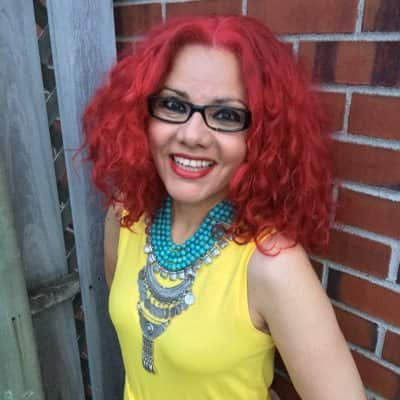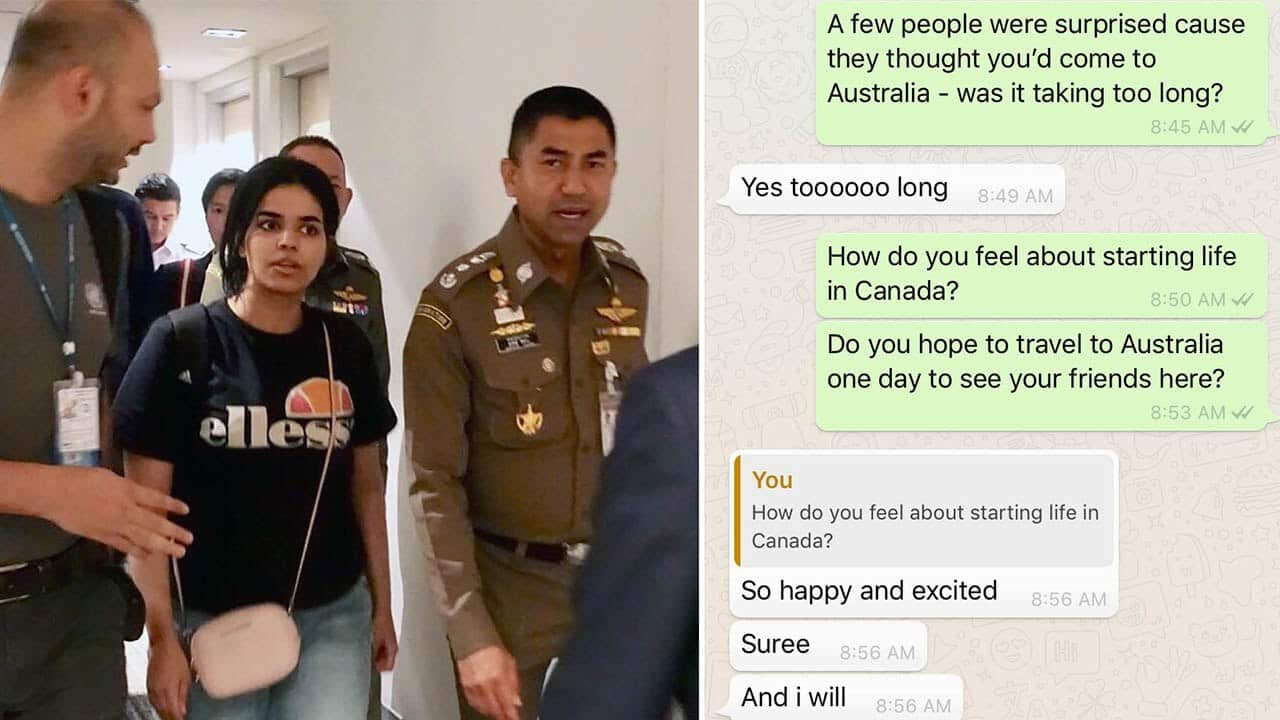An 18-year-old Saudi woman's flight from her allegedly abusive family has rallied opposition to the kingdom's male guardianship system - with some activists predicting her story could inspire a "revolution" for women in the Muslim country.
after fleeing her homeland, alleging she faced persecution and harm from her own family after renouncing Islam.
Some freedoms have been granted under who ended a ban on women driving, eased restrictions on gender mixing, and championed firsts such as allowing women to serve in the armed forces. But those changes have been accompanied by a crackdown on dissent, including the arrest and alleged torture of some of the activists who campaigned for decades to improve women's rights - as well as Muslim preachers who opposed them.
But those changes have been accompanied by a crackdown on dissent, including the arrest and alleged torture of some of the activists who campaigned for decades to improve women's rights - as well as Muslim preachers who opposed them.

Rahaf Mohammed Al-Qunun's flight to Thailand has highlighted her country's restrictive male guardianship laws. Source: AAP
Many activists are calling for an end to the guardianship system, which has been chipped away at slowly over the years but remains in force.
Under the system, every Saudi women is assigned a male relative - often a father or husband but sometimes an uncle, brother or even a son - whose approval is needed if she is to marry, obtain a passport and travel abroad.
The plight of Ms Qunun, who slipped away from her family last weekend during a holiday in Kuwait, recalls the cases of other Saudi women who fled mistreatment only to be forcibly returned to the kingdom and never heard from again.
Amid global outrage at Ms Qanun's tweets from Bangkok airport sparked an online campaign. She barricaded herself inside a hotel room for hours until the Thai government reversed its decision to send her home. In some countries, her adult age would have prevented the authorities from telling her family anything about her.
In some countries, her adult age would have prevented the authorities from telling her family anything about her.

Murdered Saudi journalist Jamal Khashoggi. Source: AAP
In Saudi Arabia, her gender meant she was her father's ward.
"Remove guardianship and we won't all migrate" trended this week on Twitter in Saudi Arabia and across the globe, women have called for an end to the practice, using the #EndMaleGuardianship to share their stories.
Mai, who identified as a 36-year-old physician, said she was embarrassed to have two children and a degree from Harvard University but still be viewed as a minor.
"I am trusted to make life and death decisions for patients, trusted to raise kids ... but not trusted to make my own decisions regarding MY life. The irony! #EndMaleGuardianship," she tweeted. Egyptian feminist activist and journalist Mona Eltahawy posted a video on Twitter declaring the incident would trigger change.
Egyptian feminist activist and journalist Mona Eltahawy posted a video on Twitter declaring the incident would trigger change.

There is a push to relax Saudi Arabia's guardianship laws. Source: SBS
"Rahaf Mohammed al-Qanun – mark my words – is going to start a revolution in Saudi Arabia,” she said in the video.
"Go on social media now and watch accounts of so many young Saudis saying 'Rahaf, you’ve shown us that we can do this. Rahaf, you have shown us, that we deserve to be free'."
She said there were more than a dozen Saudi women in jail, imprisoned for challenging the guardianship laws.
"The 15-17 Saudi feminists in prison, being tortured, are the ones who will bring equal rights – it’s not a crown prince who has fooled the world," she said in an interview with DW News.
"And sadly, the world has bought his lies that he’s an emancipator of women."
Social media user Jawhrah said the message resonated with her. "Just hearing this breaks my heart," she wrote in a message posted on Twitter.

Journalist and activist Mona Eltahawy said the case had highlighted conditions for women in Saudi Arabia. Source: AP
However, #revealrahaf has become a virtual battlefield as supporters of the Saudi teen attempt to use the hashtag to drown out trolls. The teen has also become the victim of numerous death threats via social media,
The teen has also become the victim of numerous death threats via social media,

"Rahaf Mohammed al-Qanun – mark my words – is going to start a revolution in Saudi Arabia”: Mona Eltahawy. Source: Twitter
The status of the guardianship system in law and custom makes it a thorny issue for Prince Mohammed bin Salman, who indicated last year he favoured ending the system but stopped short of endorsing its annulment.
"If I say yes to this question, that means I'm creating problems for the families that don't want to give freedom for their daughters," he told US magazine The Atlantic.
Without a codified system of law to go with the texts making up sharia, or Islamic law, the Saudi police and judiciary have long cited social customs in enforcing certain prohibitions on women. Many aspects of guardianship stem from informal practice rather than specific laws. Saudi Arabia, one of the world's most gender-segregated nations, is ranked 138 of 144 states in the 2017 Global Gender Gap, a World Economic Forum study on how women fare in economic and political participation, health and education.
Saudi Arabia, one of the world's most gender-segregated nations, is ranked 138 of 144 states in the 2017 Global Gender Gap, a World Economic Forum study on how women fare in economic and political participation, health and education.

Activists have been critical of Saudi Crown Prince Mohammed bin Salman, who has portrayed himself as a reformer. Source: AAP
Activists launched the "I Am My Own Guardian" campaign in 2016 demanding legal representation.
King Salman issued an order the following year allowing women to benefit from services such as education and healthcare without the consent of a male guardian, though rights groups say this is being implemented only on a limited basis. Other challenges remain. There is no formal bar on women buying or renting property but it can be difficult for them to do so without a male relative, according to rights groups.
Other challenges remain. There is no formal bar on women buying or renting property but it can be difficult for them to do so without a male relative, according to rights groups.

Rahaf Mohammed al-Qunun shakes hands with Thai Immigration Police Chief Surachet Hakparn before her departure for Canada. Source: AAP
Authorities have removed restrictions on women in the labour code and ended formal requirements for them to obtain a guardian's permission to work, but some employers still demand this and are not penalised for doing so.
Mohammed al-Issa, a former justice minister who sits on the kingdom's top clerical body, told Reuters last year there was no reason why women should be barred from obtaining a passport or travelling without the consent of a male guardian, but it may take time for society to accept that.
Some Saudi women do not want to wait.
"We have the right (to) be treated as adults since we're above 18 years," a woman named Fatin wrote online. "This guardianship is no more than modern enslavement system!"
- With Reuters










